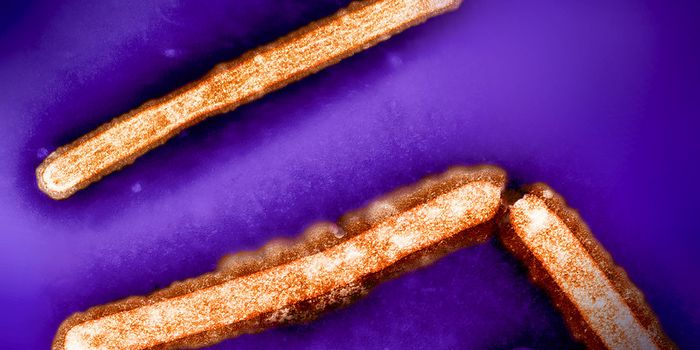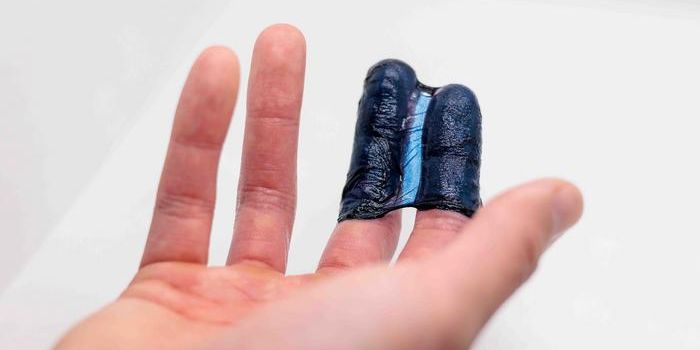Getting Closer to a Vaccine for Flaviviruses
Flaviviruses or Flaviviridae like Dengue, West Nile, Zika, Japanese Encephalitis, and Yellow Fever infect over 400 million people a year. Researchers may be getting closer to developing a vaccine for these infections, which are unique in a terrible way. While exposure to an infectious agent usually triggers an immune response that enables people to fight the pathogen more efficiently if they are exposed again, flaviviruses are different. When a person is infected with a flavivirus for a second time, the antibodies that were generated after the initial infection can cause the second one to be more severe. The phenomenon is called antibody-dependent enhancement of infection, and it has confounded the development of a vaccine for Dengue and other flaviviruses.
"If at some point in the past you've had Zika virus, later when you are exposed to dengue, you are at much greater risk of getting sick. Antibodies created by memory B cells as a result of the Zika infection can bind to certain parts of the Dengue virus, but the dengue virus isn't affected," explained Deepta Bhattacharya, Ph.D., an associate professor in the University of Arizona College of Medicine - Tucson's Department of Immunobiology. "In fact, the memory B cell-generated antibodies can work like a Trojan horse and help the virus get into the cells, where it can make the disease worse."
Bhattacharya and his team began to think about developing flavivirus vaccines in another way; instead of going after an entire virus, they looked to specific portions of viruses that are specific to each type and strain. This approach would thereby take the memory B cell problem out of the equation.
"We wanted to study how the immune system and antibody responses deal with sequential exposures to different flaviviruses," Bhattacharya said. "Antibody-dependent enhancement of infection is the main reason why it has been difficult to vaccinate against flaviviruses, dengue in particular."
Reporting in Immunity, senior study author Bhattacharya and co-authors focused on plasma cells and memory B cells, which generate antibodies. Plasma cells can make antibodies after vaccination or after an infection is over, while memory B cells generate antibodies only in the case of a second infection.
"One of the questions we've had for a long time is, what is the purpose of those memory B cells?" said Dr. Bhattacharya. "If you already have antibodies from plasma cells, why do you need the other cells?"
In this study, the researchers assessed the response of memory B cells to subsequent flavivirus infections. They determined that a new infection triggers the production of diverse antibodies that can target viruses that changed after the first infection, such as through mutation. But these antibodies can make subsequent infections with other flaviviruses worse; some of them are not good at fighting an infection.
"There is a huge amount of hidden diversity in memory B cells. For most viral pathogens, like influenza or SARS-CoV-2, this is a good thing. It means that memory B cells are poised to make new antibodies and deal with mutations if and when they arise," Dr. Bhattacharya said. "For flaviviruses, this is not so great. We found that memory B cells produce a lot of suboptimal antibodies that could enhance the second infection."
It may be possible, however, to avoid this problem by developing a vaccine that does not cause the production of these diverse antibodies.
"For people already immune to one flavivirus, this would avoid engaging these not-so-great memory B cells," Bhattacharya said. "For people who never were exposed, it avoids generating this problematic diversity in the first place."
Sources: AAAS/Eurekalert! via University of Arizona Health Sciences, Immunity






![[Guide] 7 Strategies to Boost Laboratory Collaboration](https://d3bkbkx82g74b8.cloudfront.net/eyJidWNrZXQiOiJsYWJyb290cy1pbWFnZXMiLCJrZXkiOiJjb250ZW50X2FydGljbGVfcHJvZmlsZV9pbWFnZV83YzBjZWIwM2Y5YzI4MmFlYzBhZDZhMTcyNTQ1ZGU3YmE4Y2MzMDYyXzUxNDkuanBnIiwiZWRpdHMiOnsidG9Gb3JtYXQiOiJqcGciLCJyZXNpemUiOnsid2lkdGgiOjcwMCwiaGVpZ2h0IjozNTAsImZpdCI6ImNvdmVyIiwicG9zaXRpb24iOiJjZW50ZXIiLCJiYWNrZ3JvdW5kIjoiI2ZmZiJ9LCJmbGF0dGVuIjp7ImJhY2tncm91bmQiOiIjZmZmIn19fQ==)

